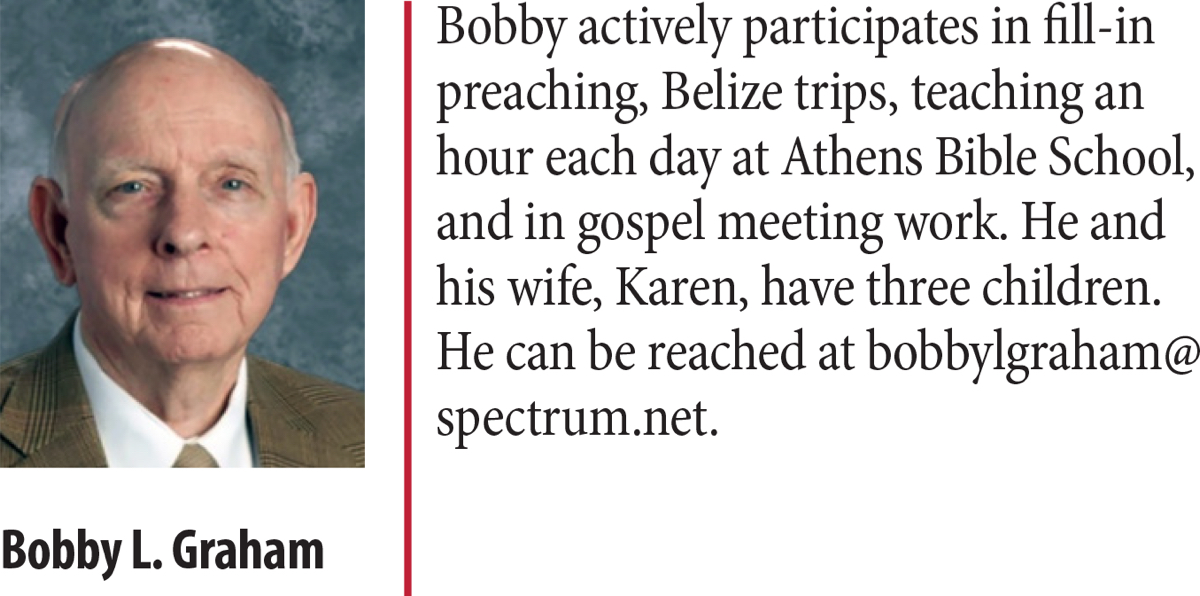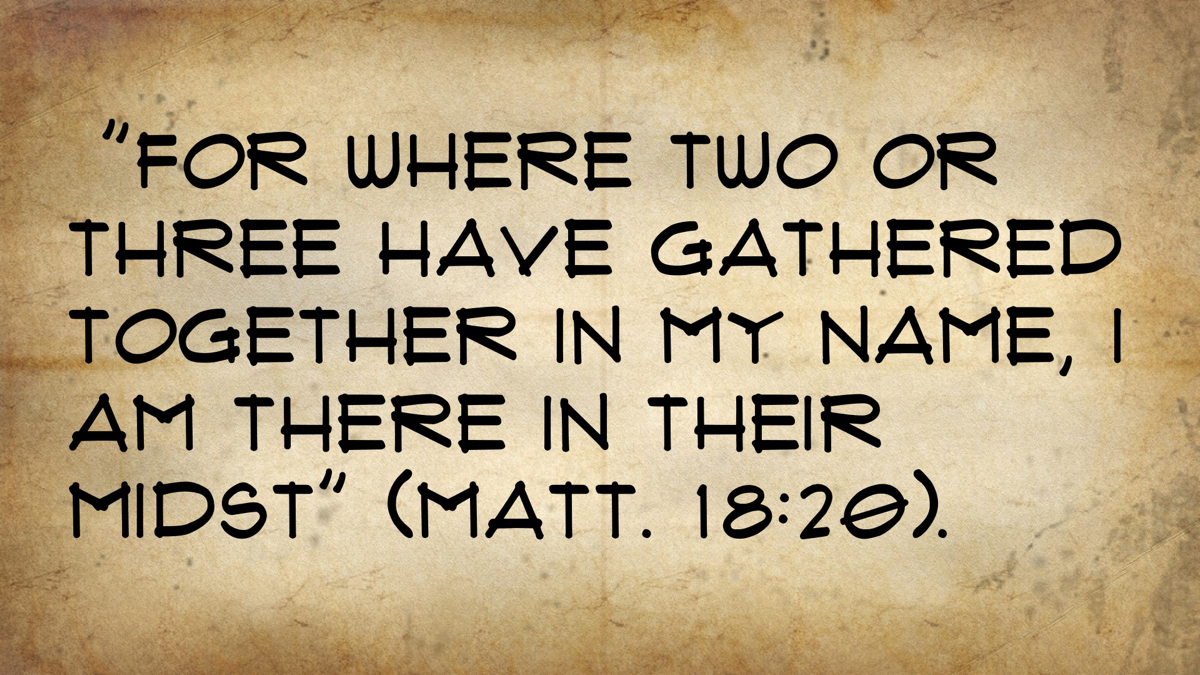
By Bobby L. Graham
I often hear people state, at church and other places, that when two or more are gathered in His name, He is in the midst of them. I take Matthew 18:20 to be Jesus talking to His apostles. The preceding and following verses endow the apostles with powers we do not possess. Do you believe it is safe to assume that the same applies to us today when we are gathered together? Or, is He in our midst representatively while remaining in Heaven?
Matthew 18:20 certainly expresses divine truth, but it has often been forced into a duty and place which its Speaker never intended. Perhaps a general study of the principle would help all of us.
The omnipresence of God is a teaching found throughout the Bible (Ps. 139:7-12; Matt. 28:20; Heb. 13:5), but this statement by our Lord in Matthew 18 is more than His general omnipresence. While it may be true that a small congregation of two or three saints enjoys access to the throne of grace, this verse is not a definition of what constitutes a local church. Though it might be possible for Christians to approach God in worship apart from the local church, Jesus did not here sanction our discounting of the corporate worship in a local assembly that we might shortchange God while enjoying personal time or pleasures, as on a hunting/fishing outing or a golfing weekend. Too often, the assumption of many has been that the Lord is there to bless our experiences, as long as we give Him a few moments of time to “take the communion.” In such cases, it seems wise to state that such shallow-minded attempts to strain a passage for a singular, selfish purpose should rather give way to sober-minded efforts to devote ourselves to God and to His Son, who devoted His all to us.
And not only as we had hoped, but they first gave themselves to the Lord, and then to us by the will of God (2 Cor. 8:5).
I speak not by commandment, but I am testing the sincerity of your love by the diligence of others. For you know the grace of our Lord Jesus Christ, that though He was rich, yet for your sakes He became poor, that you through His poverty might become rich (2 Cor. 8:8-9).
Casting down arguments and every high thing that exalts itself against the knowledge of God, bringing every thought into captivity to the obedience of Christ (2 Cor. 10:5).
Establishing the context of our verse will prove helpful in determining its limitations, if any. Earlier in the eighteenth chapter of Matthew, Jesus began dealing with the primary virtue of humility (18:1-6) and then warned about the seriousness of causing others to stumble (18:7-14). In the present paragraph where verse 20 appears (18:15-20), the Lord gave instructions on dealing with offenders—-a three-step procedure for gaining the offending brother. Step three of the procedure directs the offended person to take the matter to the church, in the hope that the offender will hear the church’s plea for restoration (v. 17). A refusal on his part to listen to the church, however, means that the impenitent party must be counted as a lost one (“a Gentile and publican”), subject to disciplinary action. The joint decision of the church to act for the restoration of the offender, expressed in verse 17, is what Jesus described in terms of binding and loosing in verse 18. Such is the case because the church acts and speaks in agreement with the teaching of the Lord’s apostles, just as Peter was instructed in the same language in Matthew 16:19. What Peter was given in”the keys of the kingdom” in chapter 16, all apostles were granted in chapter 18. Congregational discipline is God’s will, because the apostles taught it and encouraged it (1 Cor. 5:3-5, 7-13; 2 Thess. 3:14-150), just as Jesus did so here.
In this context of church discipline, Jesus assured those hearing him, including those obeying him in future times, that their efforts enjoyed the Father’s approval. The two agreeing on earth may well refer to the earlier step in the disciplinary process in verse 16, as well to the larger group in the church making an appeal to the sinful brother in verse 17, and likely praying to God in such a matter (reasoning from a smaller to the larger group in the procedure; if God takes an interest in what the smaller group is doing, then He surely is interested in the larger group). The principle is that brethren acting, speaking, and praying in harmony with the Lord’s will in this matter enjoy God’s approval and presence, for “there am I in the midst of them.”
No, Jesus did not here establish the number of disciples needed to make up a church, nor did He refer to the matter of worship per se in His statements. He certainly did not here encourage spiritual slothfulness regarding assembling with the saints. It may well be, however, that the assurance of God’s presence and approval would apply to other authorized endeavors carried out in His name (Col. 3:17).


